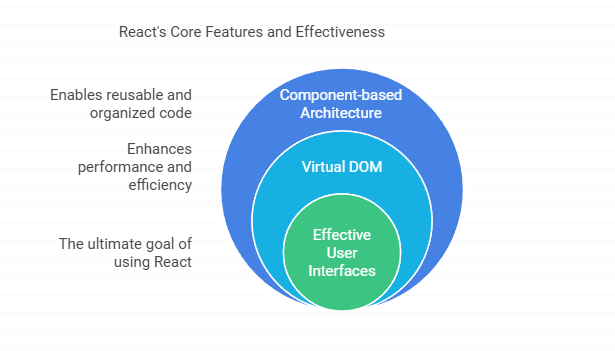In the fast-paced world of corporate banking, Know Your Customer (KYC) and due diligence are critical processes that ensure compliance, mitigate fraud, and build trust. Yet, traditional methods of handling these tasks are fraught with inefficiencies, duplication of efforts, and high costs.
By combining the transformative capabilities of blockchain and artificial intelligence (AI), we can create a revolutionary system for KYC and due diligence that addresses existing challenges and introduces unprecedented efficiency, transparency, and security.
In this article, we explore innovative concepts and unique features that can reshape corporate banking, making it more agile and resilient to the demands of a complex, globalized financial landscape.

1. Decentralized and Interoperable KYC Repository
Concept
One of the biggest hurdles in KYC processes today is the redundancy caused by each financial institution conducting its own due diligence. A decentralized, blockchain-based KYC repository solves this problem by enabling multiple institutions to access and share verified customer data securely, with the customer’s consent.
How It Works
- Customer data is stored on a blockchain, ensuring immutability and traceability.
- Institutions can access the data through smart contracts, which are triggered only with customer authorization.
- Blockchain’s decentralized nature ensures that no single entity controls the data, enhancing security and transparency.
Uniqueness
Unlike conventional KYC repositories, this system:
- Provides real-time updates to ensure that data remains accurate and current.
- Enables shared due diligence, where multiple institutions can rely on a single source of truth, reducing duplication of efforts.
- Offers immutable audit trails, enhancing trust and simplifying compliance audits.
This approach reduces the costs and time associated with repeated KYC checks, especially for large corporate clients with complex profiles.
2. AI-Driven Identity Verification
Concept
Verifying identities accurately and securely is a cornerstone of KYC. By leveraging AI, we can enhance the reliability and speed of identity verification through advanced biometric and behavioral analysis.
How It Works
- AI algorithms process biometric data such as facial recognition, fingerprints, and voice patterns to authenticate identities.
- Behavioral patterns, such as typing rhythms or transaction habits, are analyzed for additional verification.
- Blockchain stores these verified credentials with timestamps, ensuring authenticity and traceability.
Uniqueness
This system pairs the dynamic capabilities of AI with the transparency of blockchain. By timestamping each verification, banks can:
- Instantly verify the legitimacy of identities.
- Reduce the risk of identity theft and fraud.
- Create an audit-proof system, where every verification is securely logged for regulatory purposes.
The integration of AI-driven verification reduces onboarding times for corporate clients and enhances the overall customer experience.
3. Real-Time Compliance Monitoring
Concept
Compliance is an ongoing challenge in banking, with regulations evolving constantly. AI can automate the process of monitoring customer data against regulatory requirements, while blockchain provides an auditable trail for regulators.
How It Works
- AI models analyze customer profiles and transactions in real time, flagging suspicious activities that may violate anti-money laundering (AML) laws or sanctions.
- Blockchain logs these compliance checks, making the data tamper-proof and readily available for audits.
Uniqueness
This system stands out because it ensures regulators can:
- Verify compliance without accessing sensitive customer data directly.
- Trust the integrity of compliance logs, thanks to blockchain’s immutability.
This approach significantly reduces the risk of penalties for non-compliance while simplifying the regulatory audit process.
4. Cross-Border KYC Automation
Concept
Multinational corporations face the challenge of meeting diverse regulatory requirements across jurisdictions. A blockchain-based system combined with AI can standardize and streamline cross-border KYC processes.
How It Works
- Blockchain acts as a global KYC repository, ensuring consistency in data formats and access protocols.
- AI translates and verifies data against the specific regulations of each jurisdiction, automating compliance.
Uniqueness
This feature resolves a major pain point in global banking by:
- Eliminating the need for redundant checks in each country.
- Offering a seamless experience for multinational clients, who can onboard with multiple institutions using the same KYC data.
- Reducing the risk of regulatory discrepancies across borders.
By ensuring compliance across regions, this solution fosters trust and efficiency in international banking.
5. AI-Powered Risk Scoring with Blockchain Verification
Concept
Corporate banking involves assessing the risk profiles of clients. AI models can analyze transactional and behavioral data to assign dynamic risk scores, while blockchain ensures these scores are securely stored and verifiable.
How It Works
- AI identifies patterns in client behavior and transactions to calculate a risk score.
- Blockchain stores these scores along with the data used to generate them, ensuring transparency.
Uniqueness
This approach combines AI’s predictive capabilities with blockchain’s transparency, allowing banks to:
- Make informed decisions based on reliable, real-time risk assessments.
- Demonstrate accountability by providing an immutable record of risk evaluations.
This feature is particularly useful for detecting potential fraud or default risks early in the client relationship.
6. Self-Sovereign Identity (SSI) for Corporates
Concept
In traditional KYC systems, banks control customer data. Self-sovereign identity (SSI) flips this model, allowing corporates to own and manage their KYC data, granting access to banks as needed.
How It Works
- KYC data is stored on a blockchain wallet owned by the corporate client.
- AI ensures data accuracy and consistency, notifying corporates of necessary updates.
Uniqueness
This innovative approach empowers corporate clients by:
- Giving them control over their data.
- Simplifying the process of sharing KYC information with multiple banks.
- Reducing data silos and improving data quality.
SSI represents a fundamental shift in data ownership, aligning with emerging privacy regulations like GDPR.
7. Dynamic Fraud Detection
Concept
Fraud detection is often reactive, addressing issues after they occur. AI, combined with blockchain, enables proactive fraud prevention by analyzing historical transaction data for anomalies.
How It Works
- AI detects suspicious patterns in blockchain-stored transaction histories.
- Alerts are generated for potential fraud, enabling real-time intervention.
Uniqueness
This system offers:
- Enhanced accuracy, as blockchain provides a complete and tamper-proof transaction history.
- Faster fraud detection, reducing losses and reputational damage.
This feature is particularly valuable in corporate banking, where large transaction volumes create significant fraud risks.
8. RegTech Integration
Concept
Regulatory technology (RegTech) is vital for managing compliance documentation and adapting to changing regulations. Blockchain and AI can streamline this process.
How It Works
- Blockchain stores compliance documents securely, ensuring they are always accessible and verifiable.
- AI monitors regulatory changes and updates compliance procedures automatically.
Uniqueness
This solution keeps banks ahead of regulatory changes by:
- Reducing manual intervention in compliance updates.
- Ensuring all documentation is tamper-proof and audit-ready.
By minimizing the risk of non-compliance, RegTech integration improves efficiency and reduces costs.

Conclusion
The integration of blockchain and AI has the potential to revolutionize KYC and due diligence in corporate banking. By addressing key challenges such as inefficiency, duplication, and fraud, these technologies can create a more secure, transparent, and streamlined system.
Each feature discussed—whether it’s a decentralized KYC repository, AI-driven identity verification, or dynamic fraud detection—offers unique benefits that make it a game-changer in the industry. By adopting these innovations, corporate banks can not only improve their operational efficiency but also enhance customer trust and regulatory compliance.
As the financial landscape evolves, the combination of blockchain and AI will undoubtedly play a pivotal role in shaping the future of corporate banking. The time to innovate is now, and the possibilities are limitless. You can check other related blogs:
Link : React Developer Guide





One thought on “Blockchain and AI Revolutionizing KYC in Corporate Banking”